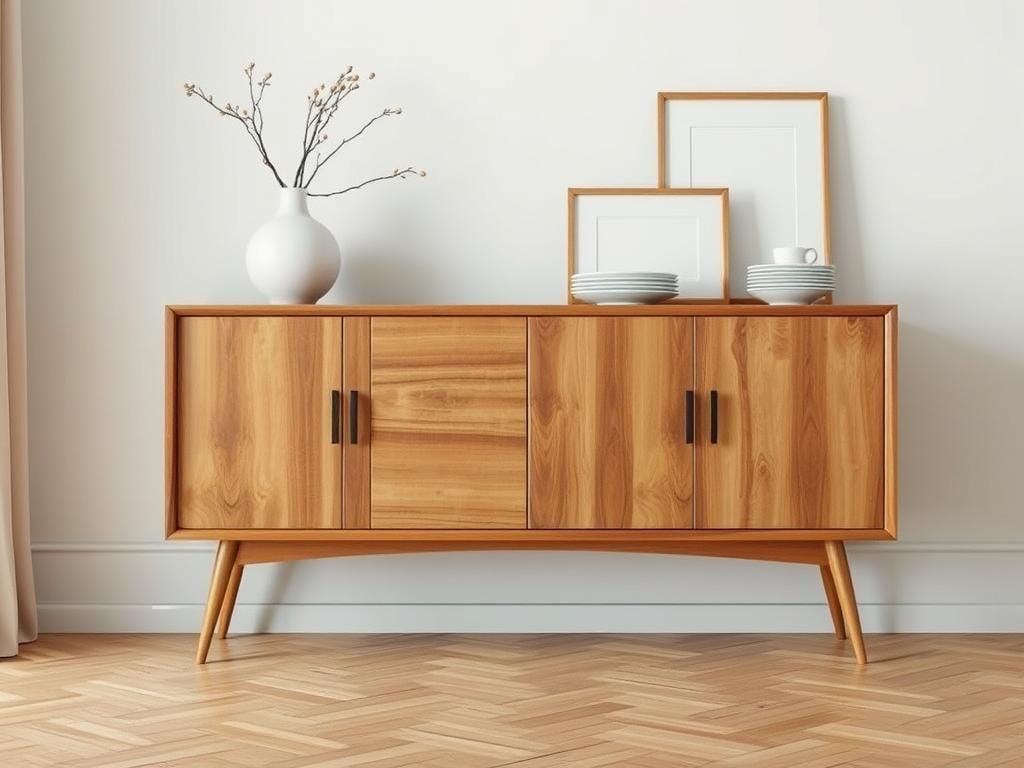
Why a buffet cabinet matters
A buffet cabinet combines hidden storage and a display surface, making it a practical anchor for the dining room. It keeps serving items accessible while reducing tabletop clutter.
Measure and plan
Measure the wall and leave at least 36 inches of clearance in front for comfortable movement and serving. Consider cabinet height relative to your dining table—28 to 36 inches often works well.
Storage strategies
- Use deep drawers for table linens and placemats.
- Reserve adjustable shelves for serving bowls and platters of different heights.
- Add small trays or dividers in drawers for cutlery and serving utensils.
Style and material choices
Solid wood offers durability and ages well. Veneer or painted finishes give a cleaner, contemporary look. Choose hardware and legs that match the room’s scale—slim legs lighten the visual weight, while a plinth base reads more traditional.
Practical touches
- Install soft-close hinges to protect dishware.
- Consider a built-in charging drawer for devices and a cord access hole for small appliances.
- Use a non-slip mat on the top surface under trays and lamps.
Styling should balance function and simplicity: one or two decorative items, a practical lamp or mirror above, and open space for serving when needed. With the right size and internal layout, a buffet cabinet becomes both a storage solution and a refined focal point.

Fluted Buffet Cabinet Brown

Decorative Throw Pillow Covers

L Shaped Sectional Couch

